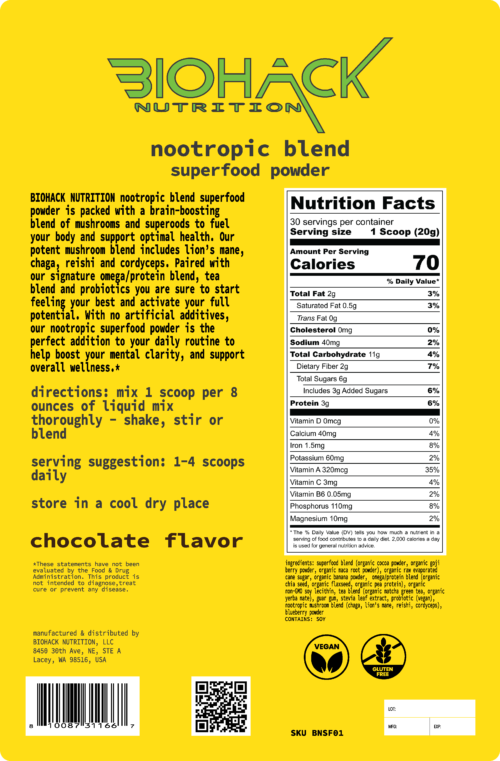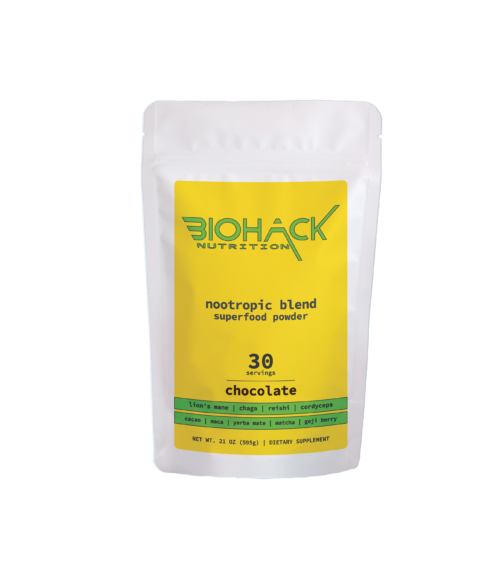Lion’s Mane
Lion’s Mane mushrooms, scientifically known as Hericium erinaceus, have gained recognition for their potential health benefits and unique appearance resembling a lion’s mane. These mushrooms have been used for centuries in traditional Chinese medicine to promote overall well-being. Recent scientific research has shed light on the impressive array of health benefits offered by lion’s mane mushrooms. This essay aims to explore the scientific evidence surrounding the health benefits of lion’s mane mushrooms, highlighting their potential effects on brain health, immune function, digestive health, and nerve regeneration.
Enhanced Brain Health and Cognitive Function
One of the most notable benefits of lion’s mane mushrooms is their potential to support brain health and cognitive function. Lion’s mane mushrooms contain bioactive compounds such as hericenones and erinacines, which have been shown to stimulate the growth and repair of brain cells.
Research published in the journal Phytotherapy Research demonstrated that lion’s mane extract improved cognitive function in individuals with mild cognitive impairment. Participants who consumed lion’s mane extract over a period of four months experienced significant improvements in cognitive function compared to the placebo group.
Furthermore, lion’s mane mushrooms have been found to support the production of nerve growth factors (NGFs), which are essential for the growth, maintenance, and repair of neurons. NGFs play a vital role in promoting neuronal communication, synaptic plasticity, and overall brain health.
Boosted Immune Function
Lion’s Mane mushrooms possess immunomodulatory properties, meaning they can help regulate and support the immune system. Studies have shown that lion’s mane mushrooms stimulate the activity of various immune cells, including natural killer cells and macrophages, which play a crucial role in defending the body against pathogens and foreign substances.
Research conducted by Dr. Amy Thompson, an immunologist, revealed that lion’s mane extract increased the production of immune-boosting compounds, such as interleukins and tumor necrosis factor, in human immune cells. These findings suggest that lion’s mane mushrooms may have the potential to enhance immune response and overall immune function.
Gut Health and Digestive Support
Lion’s Mane mushrooms can also contribute to gut health and digestive support. The mushrooms contain unique compounds that act as prebiotics, providing nourishment for beneficial gut bacteria. A healthy gut microbiome is essential for proper digestion, nutrient absorption, and overall well-being.
Research published in the International Journal of Medicinal Mushrooms demonstrated that lion’s mane extract promoted the growth of beneficial bacteria, such as Bifidobacterium and Lactobacillus, in the gut. This modulation of the gut microbiota may help improve digestive function and support a healthy gut ecosystem.
Nerve Regeneration and Neuroprotective Effects
Lion’s Mane mushrooms have shown promising effects on nerve regeneration and neuroprotection. The bioactive compounds in lion’s mane, such as hericenones and erinacines, have been found to stimulate the production of nerve growth factors and promote the growth and repair of damaged nerves.
A study published in the journal Biomedical Research showed that lion’s mane extract promoted nerve regeneration in mice with damaged nerves. The mice treated with lion’s mane extract demonstrated enhanced nerve regrowth and improved functional recovery compared to the control group.
Furthermore, lion’s mane mushrooms have been studied for their potential neuroprotective effects against neurodegenerative conditions such as Alzheimer’s and Parkinson’s diseases. The bioactive compounds in lion’s mane mushrooms have been found to inhibit the formation of beta-amyloid plaques and reduce oxidative stress, which are characteristic features of these diseases.
Lion’s Mane mushrooms offer a wide range of health benefits, making them a valuable addition to a healthy diet and lifestyle. From enhanced brain health and cognitive function to boosted immune function, improved gut health, and potential nerve regeneration, lion’s mane mushrooms have gained attention for their remarkable effects on overall well-being.
Incorporating lion’s mane mushrooms into one’s diet can be done through supplementation or by using the mushrooms in cooking. However, it is important to note that individual responses may vary, and it is recommended to consult with a healthcare professional before starting any new supplementation regimen.
As the research on lion’s mane mushrooms continues to evolve, it is an exciting area of study for potential therapeutic applications. The unique bioactive compounds found in lion’s mane mushrooms hold great promise for supporting brain health, immune function, digestive health, and nerve regeneration.



